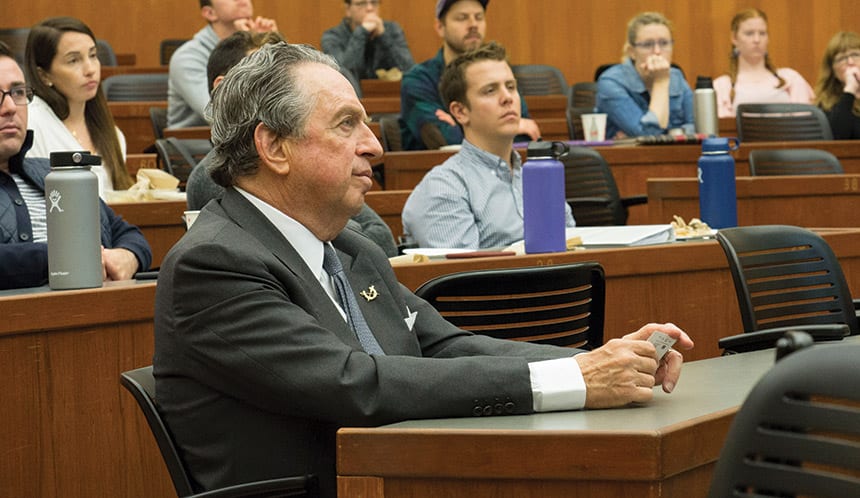
Ken Cohen ’69 had a clear objective when he approached Berkeley Law’s leadership about creating a scholarship fund for military and veteran students.
“I wanted to do something to increase diversity of thought in the law school,” says Cohen, chair and CEO of The Mortgage Acquisition Corporation. “I got a very positive response by everyone I spoke with, from the dean to admissions to development. The increase of military and veteran students, programs, and activities shows this is a growing priority of the school and its leadership. That’s encouraging.”
Cohen announced the campaign for the new Berkeley Law Active Duty Military and Veterans Scholarship Fund on January 31. Revenue from this effort will fuel recruiting momentum after the school welcomed 11 military and veteran 1Ls this year, its largest single-class total in decades.
At press time, the campaign had received gifts and pledges exceeding $75,000, many coming from Cohen’s classmates. Stu Tobisman ’69, a partner at Loeb & Loeb in Los Angeles who served in the Navy before law school, sees the campaign as a natural rallying point with his class’ 50th reunion coming up in October.
He recalls how “the Vietnam War was an all-consuming reality for the university community and the entire nation, and many of my classmates knew young men who had been sent to fight in the war and never returned. I believe that those memories resonate with my classmates when they hear about the scholarship program.”
Although many veterans are eligible for the GI Bill, which can cover substantial costs associated with law school, not all are eligible for full benefits. Former Marine Bonifacio Sison ’20, a co-leader of Military and Veteran Students at Berkeley Law, also notes that many veterans have families, including young children, and that the GI Bill may not cover the expenses of raising a family while attending law school.
“When Berkeley Law attracts motivated veterans who want to contribute to campus life, the entire school benefits,” Sison says. “It’s not uncommon for me to meet law students who don’t know any veterans or current active-duty service members. It benefits everyone to demystify misperceptions, increase dialogue, and bridge the military-civilian gap.”
—Andrew Cohen